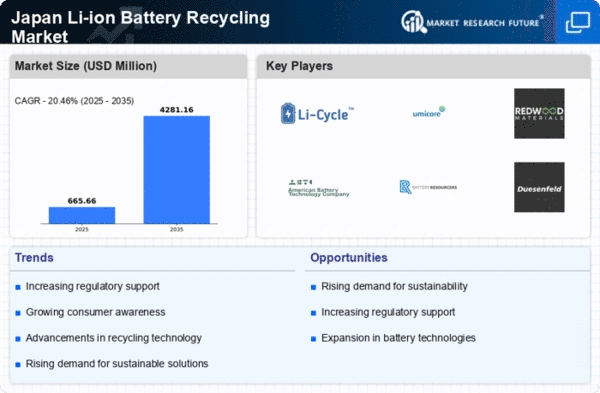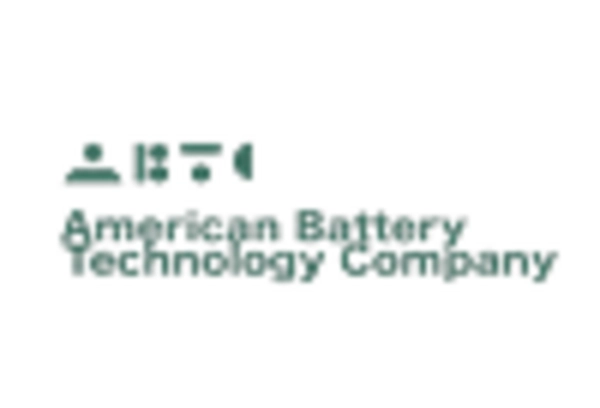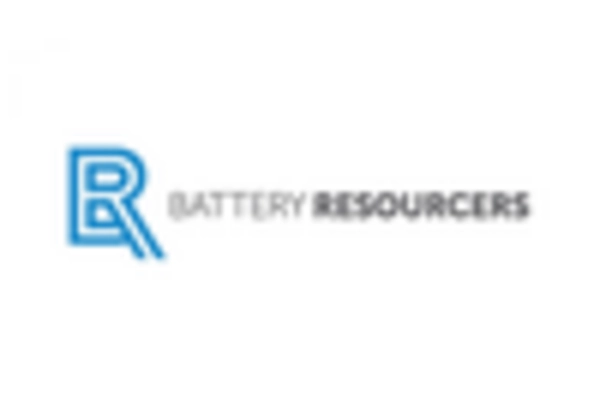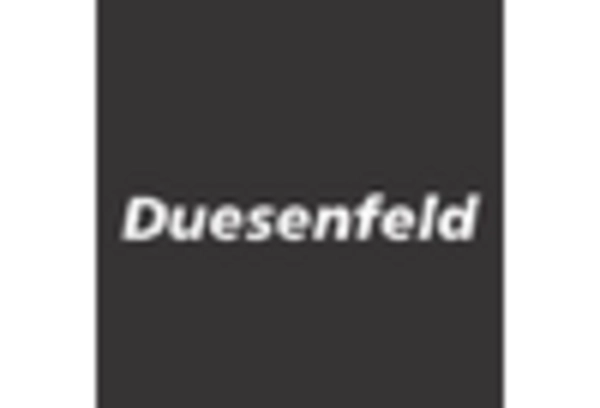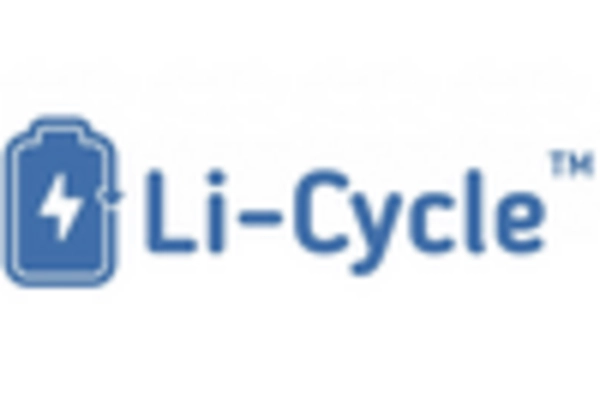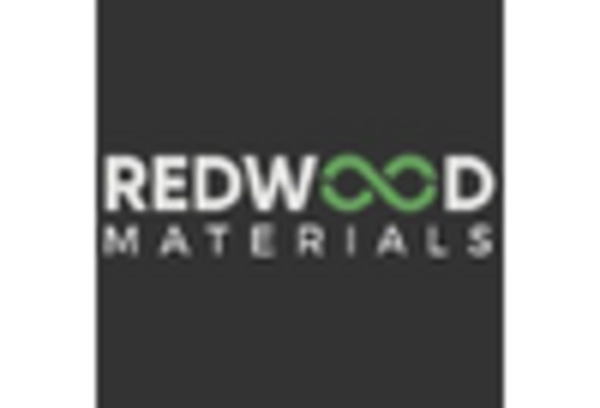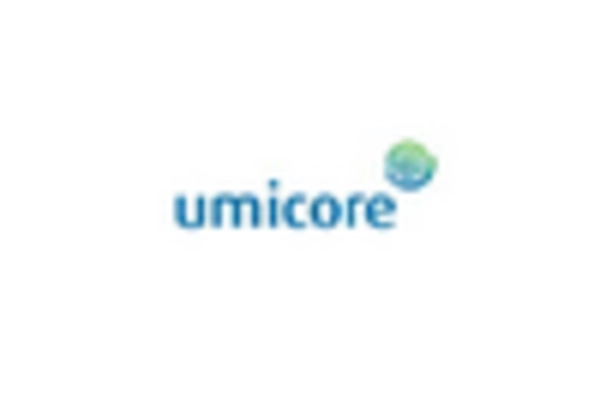Growing Environmental Concerns
Heightened awareness of environmental issues is driving the li ion-battery-recycling market in Japan. As the public becomes increasingly concerned about the ecological impact of battery waste, there is a growing demand for responsible recycling solutions. Reports indicate that improper disposal of lithium-ion batteries can lead to soil and water contamination, prompting calls for more sustainable practices. This societal shift is encouraging both consumers and businesses to prioritize recycling, thereby expanding the market. Additionally, educational campaigns aimed at informing the public about the benefits of battery recycling are gaining traction, further enhancing market growth. The li ion-battery-recycling market is likely to thrive as environmental consciousness continues to shape consumer behavior and corporate responsibility.
Government Initiatives and Policies
Japan's government has implemented various initiatives aimed at promoting sustainability and environmental protection, which directly influence the li ion-battery-recycling market. Policies encouraging the recycling of batteries are becoming more stringent, with regulations mandating proper disposal and recycling practices. The government has set ambitious targets to increase recycling rates to 50% by 2030, which could significantly boost the market. Additionally, financial incentives for companies engaging in recycling activities are being introduced, further stimulating growth. These initiatives not only enhance the recycling infrastructure but also raise public awareness about the importance of battery recycling, thereby fostering a culture of sustainability. As a result, the li ion-battery-recycling market is likely to experience accelerated growth due to these supportive governmental measures.
Rising Demand for Electric Vehicles
The increasing adoption of electric vehicles (EVs) in Japan is a pivotal driver for the li ion-battery-recycling market. As the government promotes EV usage to reduce carbon emissions, the demand for lithium-ion batteries is surging. In 2025, it is estimated that the number of EVs on Japanese roads will exceed 2 million, leading to a significant rise in battery waste. This trend necessitates efficient recycling solutions to manage the end-of-life batteries, thereby creating a robust market for recycling services. The li ion-battery-recycling market is expected to grow in tandem with the EV sector, as manufacturers and consumers alike seek sustainable disposal methods for used batteries. Furthermore, the potential recovery of valuable materials from recycled batteries, such as lithium and cobalt, adds economic incentives for stakeholders in the recycling industry.
Collaboration Between Industry Stakeholders
Collaboration among various stakeholders in the li ion-battery-recycling market is emerging as a crucial driver for growth. Partnerships between battery manufacturers, recycling companies, and government agencies are being formed to create a more efficient recycling ecosystem. These collaborations facilitate knowledge sharing, resource pooling, and the development of standardized practices, which can enhance the overall effectiveness of recycling efforts. For instance, joint ventures are being established to invest in advanced recycling technologies and infrastructure, which could lead to improved recovery rates and reduced costs. As these partnerships strengthen, they are likely to foster innovation and drive the expansion of the li ion-battery-recycling market, ensuring that it meets the increasing demand for sustainable battery disposal solutions.
Technological Innovations in Recycling Processes
Advancements in recycling technologies are transforming the li ion-battery-recycling market in Japan. Innovative methods, such as hydrometallurgical and pyrometallurgical processes, are being developed to enhance the efficiency of material recovery from spent batteries. These technologies can potentially recover up to 95% of valuable materials, including lithium, nickel, and cobalt, which are critical for new battery production. As these technologies become more commercially viable, they are expected to lower operational costs and improve the profitability of recycling operations. Furthermore, the integration of automation and artificial intelligence in recycling facilities is likely to streamline processes, reduce labor costs, and increase throughput. Consequently, the li ion-battery-recycling market stands to benefit from these technological advancements, making recycling a more attractive option for manufacturers and consumers alike.


